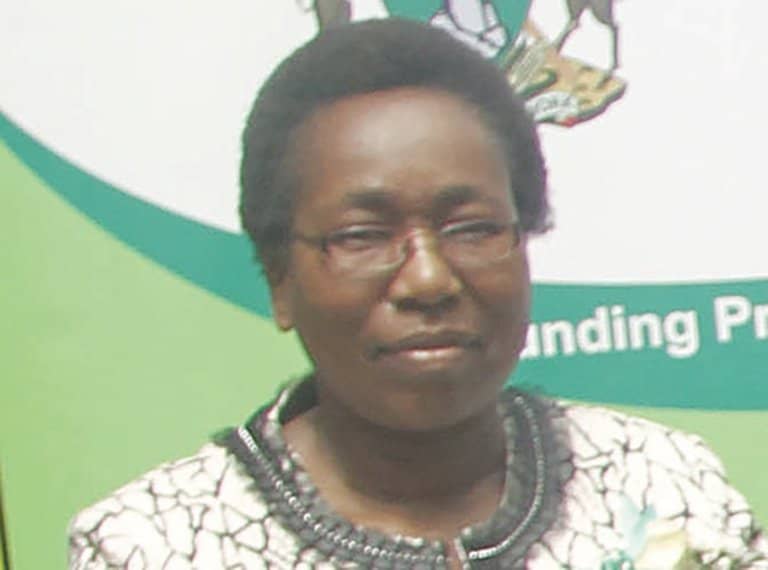Justice Ndewere refused to deny Sikhala, Mupfumira bail

Justice Erica Ndewere
Suspended High Court judge Erica Ndewere has opened the lid on rampant judicial interference in the handling of high profile cases saying her current predicament has been necessitated by her refusal to take unlawful instruction from Chief Justice Luke Malaba.
Ndewere made the assertion in an urgent chamber application for an interim interdict to halt the setting up of a tribunal by chief justice Malaba to investigate her conduct as a Judge of the High Court.
She said she was being victimised for standing up to Malaba’s attempts to undermine “my independence as a judge and the independence of the judiciary as a whole.”

The suspended High Court judge said she was not opposed to being investigated per se as she had absolutely nothing to hide.
“However, what I object to strongly is the violation of my rights and the ignoring of legal provisions and established procedure in the manner in which I am being investigated, and most disturbingly of all, how this investigation is being weaponised as a means of attacking not just my independence as a judge but the independence of the judiciary as a whole,” Ndewere said.

Justice Ndewere was instructed to deny Hon. Job Wiwa Sikhala bail, 
Ex-Minister Prisca Mupfumira, another intended victim who was supposed to be denied bail
Ndewere said she was first threatened by Malaba in August 2019 who cautioned her that she would be investigated over her refusal to follow his unlawful directive to deny Mapfumira bail.
In July 2019, Mupfumira was arrested for corruption charges and was denied bail by the Magistrate’s Court.
“An appeal was made to the High Court under case number B 1252/19 and I happened to be the duty judge in the bail Court. The appeal hearing commenced on the 2nd August, 2019 when the State raised a preliminary objection based on the production of a certificate by the Prosecutor General that no court had jurisdiction to hear the appeal.
“The defence argued that the Prosecutor General’s certificate was inconsistent with the 2013 Constitution, an argument I upheld and undertook to give my reasons with the main judgment,” Ndewere said.
Ndewere said on August 13, “the Judge President once again rang me and as I was in the middle of writing the judgment. I asked if all was well and he said he could not tell me anything over the phone and directed that I see him in Chambers at 10.00hrs the following day.”
“As instructed, I duly attended at his Chambers on the following day, Wednesday 14th August 2019. The Judge President briefly advised that the Chief Justice, the 2nd Respondent herein, had advised him to tell me that if I granted Mupfumira bail, I would be investigated.
“I told the Judge President that the Chief Justice could go ahead and investigate me as I had nothing to hide. At the time, I assumed that the investigation related to the alleged bribe by the person called Belinda. I duly left the Judge President’s office.
“I was extremely upset by this turn of events as in my experience as a prosecutor, law officer, Labour Court and High Court judge, I had never experienced such outright interference with the independence of a judicial officer. That this was coming from the Chief Justice through my direct boss particularly perturbed me as these are the two people I expected to guard judicial officer’s independence jealously.”
“On the evidence led and on the submissions made, I denied Mupfumira bail. In all sincerity, this was a decision based on the merits and the evidence of the investigating officer.”
“From subsequent events, it became clear that the Chief Justice was unhappy at my decision on the Prosecutor General’s certificate as Professor Madhuku was later invited to lecture judges at their symposium on the validity of the certificate until it is set aside by the Constitutional Court.”
“I believed that the trauma I had been caused by the Mupfumira case was over until in March, 2020, I received a query from the Chief Justice over a review I had done in October, 2019.”
“This raised a lot of questions as this in the normal course would not involve the Chief Justice. After investigating the issue and taking advice, I decided to apologise as there had been no prejudice and the accused had finished serving his sentence.”
“I was surprised when the Chief Justice pursued the matter and told the Judge President to advise me that he would be taking me to the Tribunal,” Ndewere said.
She added that the case of opposition legislator Job Sikhala also proved to be a thorn in the flesh for authorities who tried to persuade her from presiding over the matter independently.
Ndewere said the 15th September, 2020 is significant in that this is the day after she had reserved judgement in the bail appeal of SIKHALA v THE STATE and there can be no doubt that this was designed to put pressure on me as I prepared my judgement.
“The correspondence of the 15th September, 2020 included documents containing complaints against me from the 4th Respondent (JSC). It is unclear how the 4th Respondent became seized with the matter before there was compliance with provisions of the Regulations. It was highlighted to me that the complaints had been placed before the 4th Respondent in terms of section 187(3) of the Constitution of Zimbabwe,” Ndewere said.
“However, section 187(3) does not empower the 2nd Respondent (Malaba) to receive complaints. Nevertheless, I was asked to respond to the complaints on or before the 22nd September 2020. This is despite Section 187 (3) having no such provision. The documents delivered to me are attached as Annexure “H8” Series. The documents make it very clear that the 2nd Respondent (Malaba) was the complainant before the 4th Respondent.”
As with the Mupfimira matter, Ndewere said she was simply the duty judge hearing bail appeals at the time the appeal was filed.
“Given the threats made against me when I handled the bail application of Prisca Mupfumira, I have reason to believe that the timing of the service of the complainants was calculated to intimidate me into abandoning my independence as a judge and to deny Mr Sikhala bail regardless of the merits of his case. However, I refused to be intimidated and I considered the bail appeal on the merits and, after determining that it was a meritorious case, I granted Mr Sikhala bail,” Ndewere said.
On October 26, High Court judge Brighton Sadowera ruled in favour of Ndewere establishing that the suspended judges’ rights had been violated and dignity impaired by the unprocedural disciplinary hearings.
In challenging disciplinary proceedings, Ndewere claimed that the allegations against her are not only false and malicious but are calculated to compromise the independence of the judiciary and subject Judges to undue influence and unlawful control of Chief justice Malaba.
Reached for comment Kent University law professor Alex Magaisa told Zim Mornng Post that Ndewere’s challenge exposes the rot in Zimbabwe’s judiciary.
“The judge has done the right thing. The power to remove public officers is being abused and it’s high time someone challenged it. More importantly Judge Ndewere’s challenge exposes the rot in our judiciary, which is headed in a dictatorial fashion,” Magaisa said.
“The bullying culture by the leadership of the judiciary was evident in the recent interviews for judges of the Constitutional Court. The head of the judiciary should not be interfering with the decision making processes of other judges. I am aware that several other judges are cheering on Judge Ndewere’s stance because they are also tired of the interference and bullying,” he said.
–Zimmorningpost





